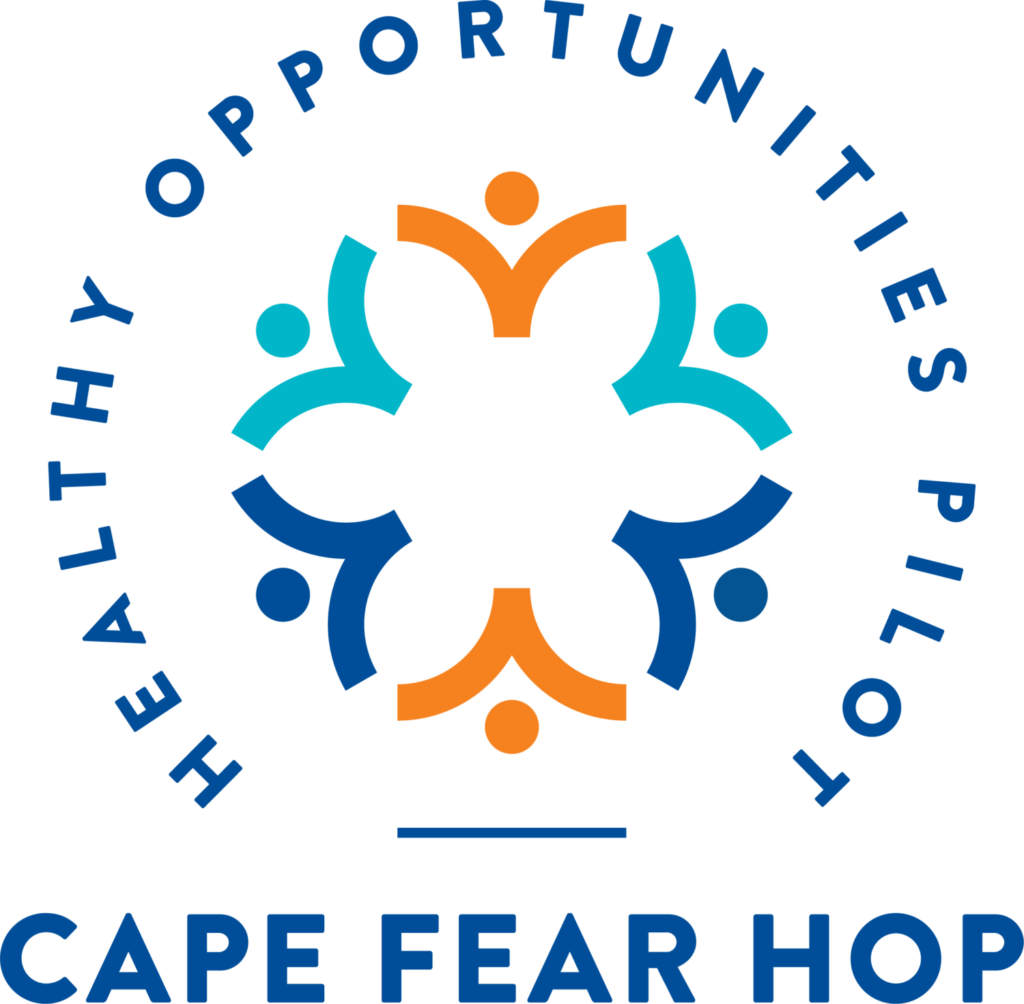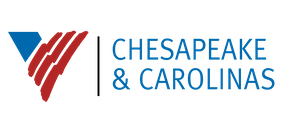Contact: Nicholle Granger
ngranger@voaches.org
July 5, 2022

Healthy Opportunities Program
We’re excited to announce the launch of our new Healthy Opportunities program in North Carolina! We are now part of a network of Human Services Organizations (HSO) that have come together as part of North Carolina’s new Healthy Opportunities Pilot (HOP) initiative to address barriers to health and well-being for low-income and underserved communities in the Cape Fear region.
In response to the need for more comprehensive Medicaid services that address all aspects of health, the federal Centers for Medicare & Medicaid Services created HOP, the nation’s first comprehensive pilot program to test and evaluate the impact of providing nonmedical interventions related to food, housing, transportation, and toxic stress (specifically Intimate Partner Violence) to those insured under Medicaid who also have the greatest needs.
Through our arm of Healthy Opportunities, we will be providing housing services to Medicaid beneficiaries at risk of homelessness in Bladen, Pender, and Columbus counties. Our staff will help eligible households find housing, provide additional support to help them remain housed, provide financial support to cover down payments and the first month’s rent, and connect those with medical needs to short-term housing where they can recover.
“Although there is a shortage of housing, potential renters trust working with us because we are advocates for our clients and we support them in more than just financial resources. We help them navigate the process and provide a wide range of life skills to better prepare them for moving on.”
Sonya Green, VOACC Healthy Opportunities Program Coordinator
Health behaviors and the types of interventions listed above, often referred to as Social Determinants of Health (SDOH), drive about 80 percent of health outcomes for patients, yet little funding is available to alleviate these barriers for Medicaid patients. Community Care of the Lower Cape Fear was one of three Network Leads chosen to pilot the program and will work within a six-county region, including Bladen, Columbus, Pender, Onslow, Brunswick, and New Hanover counties.
After an extensive application and assessment process, a network of Human Service Organizations was created to provide 29 non-medical, evidence-based interventions or services designed to reduce healthcare costs and improve health outcomes.
“Being someone that was a part of this from the planning phase, I am excited to see this much needed service Launch.”
Tiana Joyner, VP of Carolinas Programs
Why It Matters
Many studies have connected Medicaid coverage to better health outcomes for low-income individuals and families over the years. But clinical interventions alone aren’t enough to overcome health inequities and ensure those at the greatest risk can experience long-term health and well-being.
Lower-income people often face social and structural barriers to achieving health, known as Social Determinants of Health (SDoH), which drive about 80 percent of health outcomes. These barriers include food and housing insecurity, racism, discrimination, and violence; access to jobs and quality education; access to nutritious food; and access to clean air, land, and water. Here’s a snapshot of these barriers for North Carolinians based on a report published earlier this year by the Center for American Progress.
- More than 1.2 million North Carolinians are unable to access affordable housing.
- North Carolina has the 8th highest food insecurity rate among all U.S. states.
- In North Carolina, 1 in 5 children live in food-insecure households, and nearly 1 in 4 have experienced trauma during childhood.
- Nearly 1 in 2 women in North Carolina have experienced intimate partner violence.
Despite the need for more comprehensive services, little funding is available to alleviate these barriers for Medicaid patients. That’s where HOP comes in. Community Care of the Lower Cape Fear was one of three Network Leads chosen to pilot the program and will work within a six-county region, including Bladen, Columbus, Pender, Onslow, Brunswick, and New Hanover counties.
The network HSOs will receive referrals from NC Medicaid Managed Care Health Plans and other entities approved for the pilot, deliver the services to those individuals, and be reimbursed for a fee associated with the type of service. Data will be collected to evaluate the effectiveness of the interventions and learn if this model, partnering HSOs with healthcare payers and providers, is sustainable and scalable for the Medicaid program statewide. If HOP proves to be effective, the North Carolina Department of Health and Human Services will explore integrating these non-medical interventions statewide for Medicaid beneficiaries, creating a perpetual funding stream to eliminate SDOH barriers that could forever change the health trajectory of our most vulnerable population as well as change the economic viability of the agencies who often struggle to support them.
“The organizations in the network already have the experience, expertise, and community relationships to deliver these services. They are known for providing food boxes to the food insecure, adding a wheelchair ramp for greater access, linking someone to trauma-informed mental health services or transporting someone safely to a job interview. They are trusted supports within their communities and have raised their hands to participate in a pilot that could change Medicaid.”
Sarah Ridout, Cape Fear HOP Program Director
For more information about the HSOs participating in the HSO Network and Healthy Opportunities Pilot, go to www.carelcf.org/healthy-opportunities and click on the Cape Fear HOP HSO Network Directory.
About VOA Chesapeake & Carolinas
Volunteers of America Chesapeake & Carolinas (“VOACC”) is a faith-based, nonprofit organization whose mission is to inspire self-reliance, dignity, and hope through housing, health and human services.
At VOACC, we have been helping to create Healthy Communities for All for over 128 years by aligning housing, health and human services. We actively pursue health equity by filling the gap in housing and care for underserved populations, including those who are experiencing homelessness, low-income, underinsured or uninsured, justice-involved and veterans. By offering integrated housing and care, we address the social determinants that impact the long-term stability for those in need.
Through a dedicated team of management, staff and volunteers who are guided by our Core Values – Visionary, One Body, Integrity, Compassion, Excellence, and Faith – we are the safety net for thousands of men, women and children each year across Maryland, the District of Columbia, Virginia and the Carolinas. We operate over 49 programs focused on 8 areas of service: homeless services, affordable housing, mental health, substance use recovery, intellectual/developmental disabilities services, community re-entry, veteran services and workforce development.
VOACC has over 900 staff members and more than 2,000 volunteers. The organization helps over 10,600 individuals and families every year from Maryland, Virginia, the District of Columbia and the Carolinas. For more information on VOACC, please visit www.voachesapeake.org.
About Community Care of the Lower Cape Fear (CCLCF)
CCLCF is a 501(c) (3) that improves health outcomes for eligible Medicare, Medicaid, uninsured, and privately insured enrollees in southeastern NC, including New Hanover, Pender, Brunswick, Columbus, Onslow, and Bladen counties. Our interdisciplinary Care Teams include RN care managers, social workers, pharmacists, and provider support. We work with Prepaid Health Plans, ACOs, practices, and providers to improve patient outcomes, experience, and satisfaction. In 2021, NCDHHS selected CCLCF as one of three organizations to be the Network Lead for the Healthy Opportunities Pilot. The Healthy Opportunities Pilot is the nation’s first comprehensive program to test and evaluate the impact of providing non-medical interventions related to food, housing, transportation, and interpersonal safety to high-needs beneficiaries. Cape Fear HOP was established to represent the Network Lead and Human Service Organization Network for the pilot program. To learn more, visit www.carelcf.org/healthy-opportunities
